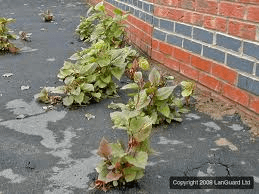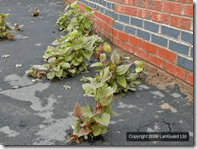SACRAMENTO, Calif. — California officials have deployed thousands of insects native to South America in the San Joaquin-Sacramento River Delta to combat an invasive weed that has clogged the waterway.
Scientists released more than 5,000 water hyacinth plant hoppers at several locations in San Joaquin and Sacramento counties this month, the state Department of Food and Agriculture announced on Thursday.
Officials hope the insects will establish self-sustaining colonies and begin chomping down on water hyacinth. The invasive plant forms a dense carpet on the surface of waterways, impeding boat access and clogging water intake systems.
"Water hyacinth is probably the world’s worst aquatic weed," said Philip Tipping, a research entomologist with the United States Department of Agriculture’s Agricultural Research Service.
The weed, which comes from South America, was introduced in the United States in the 1880s. It is now in at least six states, including Florida, Texas and Louisiana, according to the USDA.
Tipping’s research helped lead to federal approval for the release of the tiny water hyacinth plant hopper. The insect was deployed along the St. Johns River near Palatka, Fla., in 2010. It has also been released at several sites near West Palm Beach, Fla. although it’s still too early to tell what effect, if any, it has had, Tipping said.
"In a quarantine setting, it destroys the plants," he said. "But you can’t predict how well it’ll do when it’s released."
The insects may not adapt to the weather and die off, he said.
"Our goal is to see if we can’t start punching a hole in these mats of water hyacinth, so people can take a canoe through them or a duck can get through them," he said.
The use of imported insects to fight invasive bugs and plants – part of a practice known as biocontrol – does have its critics, who say too many insects have been let loose without a full understanding their effectiveness and the long-term environmental consequences.
Supporters counter that biological controls are an alternative to widespread pesticide and herbicide use. They say scientists spend years vetting critters to make sure they do not feed on what they are not supposed to.
In the case of the water hyacinth plant hopper, about 90 species were tested, including plants that have no relationship to water hyacinth but are found in the same habitat and commercial plants such as tomatoes, Tipping said. Researchers found that the insect survived exclusively on water hyacinth, he said.
Read more: http://www.sacbee.com/2011/07/30/3805592/calif-releases-insect-to-combat.html#ixzz1Th4obwwf


Deprecated: strpos(): Passing null to parameter #1 ($haystack) of type string is deprecated in /home/agriviek8Qv/agriviet.net/public_html/wp-includes/comment-template.php on line 2522